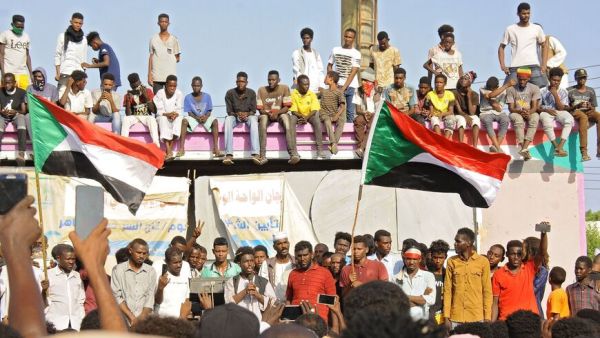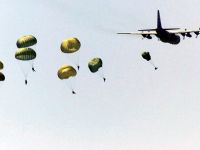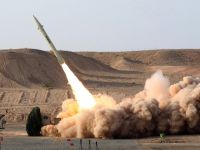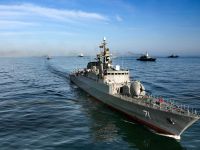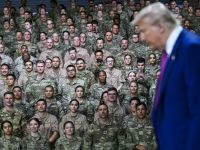One can be sure Sudan is in a mess that no one can solve. For an inkling of a moment many felt a real understanding was reached between civilians and the military over a power-sharing deal put in place in 2019 when the 30-year-old rule of Omar Al Bashir was ended, but it is now apparent this was short-lived and has become an undoubted aberration.
The so-called military coup, a putsch which many are still at odds on what to label, has taken everyone by surprise on the domestic, African, Arab and international levels. But alas, it shows the military-rule culture that dominated Sudan since 1969 when the myriad coup-after-coup tradition and army officers control, is here to stay regardless of the tinkering in the system.
In many ways the "alternating" power-sharing deal that dominated the country for the past three years was unique. A civilian-military governing administration was indeed, a novel one, it meant there is an agreement between the street and army officers, between politicians and army generals and officers over the best way forward for the country.
A video from yesterday's protests in
— Muhammad Salah (@Muhammad_Salah1) October 26, 2021
Khartoum condemning the Coup
d'état in Sudan. 25.10.21 (the
filmmaker is uncredited for
protection) #الردة_مستحيلة #SudanCoup #sudan @CNNAfrica @wasilalitaha @BBCAfrica @France24_en pic.twitter.com/w73ZyzOJNt
That's why there was a great deal of surprise when at one full swoop the head of the Sudan Sovereign Council General Abdel Fattah Al Burhan arrested the head of the civilian government Prime Minister Abdulla Hamdok, most of his ministers and effectively torn up the constitutional charter that was reached to establish the power-sharing deal.
Worse still, the manner by which premier Hamdok and his wife were taken from their home sent many aghast for it amounted to a kidnapping and pointed to dark days ahead. The next 48 hours was troubling, it kept people on the edge of their seat with many saying "what have they done to our prime minister". Neither his whereabouts, nor of his cabinet ministers where known.
Protests now forming down Africa St in #Khartoum in response to reported coup in #Sudan ?? pic.twitter.com/xSKe93DVRP
— William Carter (@WillCarter_NRC) October 25, 2021
Although it was denied, these actions, unpalatable for a nation on its way to a wobbly democratic transition, was a stark reminder that the old days of military, dictatorial rule were back. Welcome military rule! It was as of nothing changed and many compared the actions with the ones instituted by Abdel Fattah Al Sisi of Egypt in 2013 when he arrested elected president Mohammad Morsi, imprisoned him and took over the reigns of power. Al Sisi was Defence Minister who was able to do this with the nod from the army generals.
But there was much difference in the Sudan case. With the arrest of Hamdok, the Sudanese street was quickly mobilised through protests and rallies led by the professional associations and political parties who were responsible for the 2019 revolution in Sudan.
They quickly denounced the actions that couldn't be kept under cover because of the social media and telecommunications. These were later cut, but it had been too late by then because news of the coup already took hold and the taking of Hamdok and his ministers known.
A coup has taken place in Sudan. The Communists in Sudan have called for a People’s uprising in protest #SudanPeoplesRevolt pic.twitter.com/4kxkBdEbFS
— Manolo De Los Santos (@manolo_realengo) October 25, 2021
In addition, the international community quickly reacted starting from the pan-African level, to the United Nations and the United States. The latter was stunned by the fact that only a day earlier US Special Envoy Jeffrey Feldman visited Khartoum and met with the generals and politicians and thought he had ironed a deal between them to continue with the power-sharing arrangement.
Subsequently, US Secretary of State Antony Blinken condemned what had happened and threatened to freeze $700 million dollars in aid to be paid to Sudan. The US move quickly sent a signal to the World Bank and IMF to put on hold the package deal that was meticulously negotiated by the Hamdok's government aimed at reviving Sudan's economy.
This was a further signal to other international donors including Europeans to pause at least to see how things would develop in Sudan. The Germans condemned Burhan's move and said his military action puts the democratic transition in jeopardy and must be reversed.
The United Nations Secretary-General Antonio Guterres also called for the immediate release of Hamdok and the rest of his government ministers. He added there there must be a return to the Constitutional Charter that was agreed on between the civilians and military officers after months of nationwide protests that rocked the country.
Sudan coup: Thousands of pro-democracy supporters protest against the military's actions in the capital Khartoum. pic.twitter.com/fhUnAza9Xa
— DW News (@dwnews) October 28, 2021
Such pressure may have simmered down the military, for a day later, Al Burhan made a statement reassuring the Sudanese street and the international community that Hamdok was well, he was staying at his home and can leave at anytime. True to his words, and hours later Hamdok and his wife were returned to their home.
But a major problem remains. What about the rest of the ministers; they are still being kept in custody, the state of emergency in the country is still being kept and nothing is said about the constitutional provisions abrogated. Hamdok was released but what is his capacity now and what role does he have? The situation in Sudan is fluid although Al Burhan continues to say he is committed to the democratic transition in the country and the steps he had taken is no more than "rectification."
Sudan's PM Abdalla Hamdok is under house arrest for refusing to support a military coup attempt, says information ministry ⤵️
— Al Jazeera English (@AJEnglish) October 25, 2021
? Follow our LIVE blog for the latest updates: https://t.co/AwjM0PEBkN pic.twitter.com/7aQBXzTUsi
But what does that mean? Sudan today faces a major problem between the civilian politicians and the military. There had been a continuous squabble between the two about the affairs of the country. The military, at the top of which is Burhan, believe the politicians are not providing leadership and not serving the country and the street effectively. The politicians - starting from the prime minister, and whose political future is now in doubt - on the other hand, argue there is a real need to reign in the military, control them and keep them in the barracks.
But all this suggests there is a deadlock between the two and when the state of emergency was announced, it was to be sealed, for quite a while judging from Sudan's military-in-politics history. It doesn't seem Burhan would be handing over to a civilian administration anytime soon since the Sovereign Council had been dissolved. He, Burhan, was to hand over to a civilian leader next month under the power-sharing deal but for the time-being this are put on hold.
Its a murky situation even if different international parties seek to intervene. More pressure may do the trick but the military in the world, especially in developing nations are a law unto themselves. They dictate and dominate with Sudan especially, since it is a classic case, for their rule in the country had been continuous and with a stranglehold. They dominate the state and economy owning major companies who are responsible for running ventures, projects and corporations.
Protect Abdalla Hamdok Restore civilian rule!The role of Egypt, Saudi, and UAE in destabilizing HoA is obvious and must be condemned! Al Burhan is their tool!#DemocracyShallWin #TPLFSURRENDERNOW #SanctionIsWrong #UnityForEthiopia @allafrica @SudanTribune_EN @SudanzUprising
— Yohannes Daksa (@jhonburte) October 28, 2021
Aside from that, many fear that Burhan took this step to avoid what lies ahead. Former president Al Bashir is wanted by the International Court of Justice and it is feared if he is eventually handed over, he would spill the beans so to speak and Al Burhan and other senior military officers would be implicated in different crackdowns, atrocities and massacres in Khartoum during the 2019 popular protests, in Darfur and even in Yemen where a Sudan army contingent fighting in the war there.
So this is Sudan today, plenty of free wheeling and dealing, the situation may change all the time with the street on the boil and the army firmly in control. How long can they continue to do that one wonders. Sudan has become a political stalemate if ever there was one. However, Burhan is still riding high, he shows no immediate sign of turning over his newly-found power with the sacking of quite a few of Sudan's ambassador's around the world, telling them their services are no longer needed as we wait and watch what happens next.


